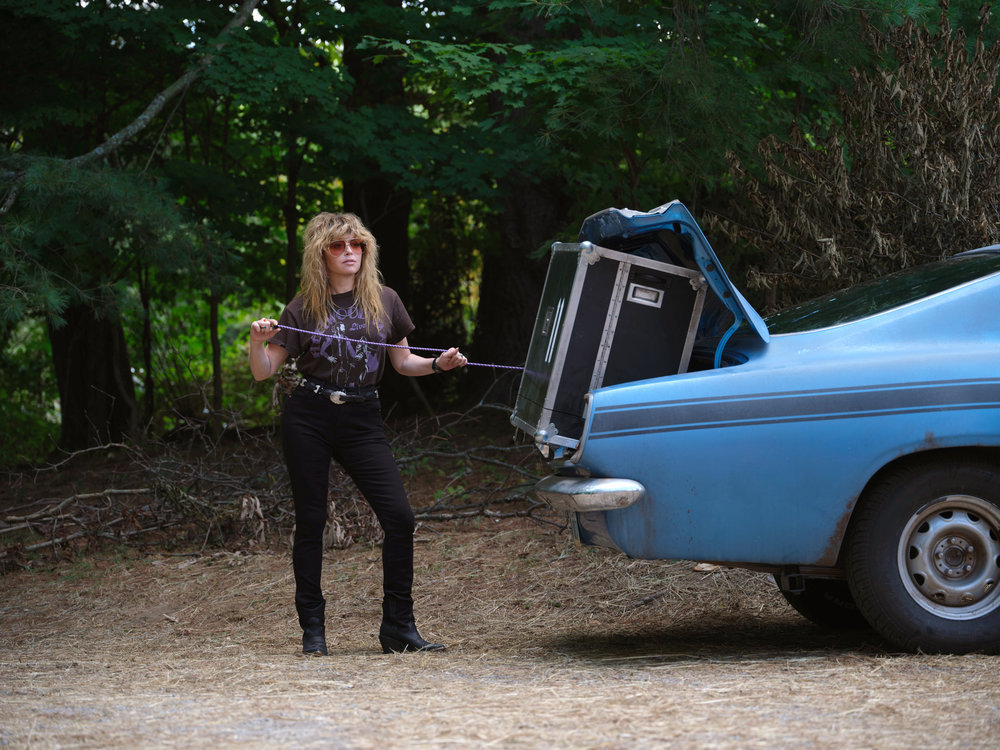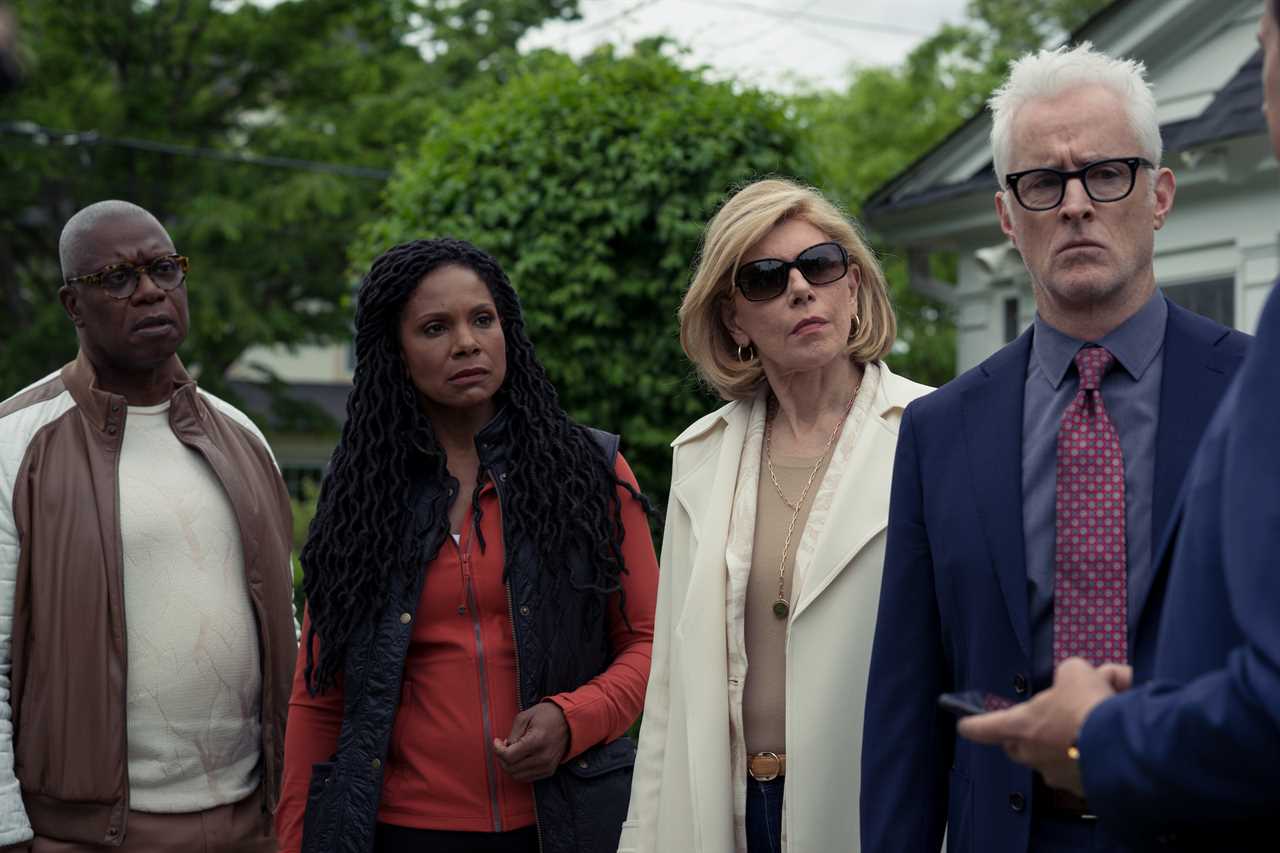
The year is 1998. “Frasier” is nominated for Best Comedy Series at the Emmys. It will win for the fifth time.
The year is 2014. “Modern Family” is nominated for Best Comedy Series at the Emmys. It will win for the fifth time.
The year is 2023. “Ted Lasso” is nominated for Best Comedy Series at the Emmys. It will likely win for the third time.
Proma, there are undoubtedly more egregious examples of the Emmys repeating themselves beyond all reason and common sense than what’s listed above, but their latest bit of rage-inducing repetition is too baffling to ignore. Yes, it’s time to talk about “Ted Lasso” again. Despite an infamous (and widely agreed-upon) drop-off in quality during its third (and possibly final) season, the TV Academy went right ahead and handed the Apple TV+ original more Emmy nominations than any other 2023 comedy. Not only that, but its 21 nominations for Season 3 set a new series high. (Seasons 1 and 2 earned 20 nods apiece.) While “Ted Lasso” fans may confuse the show’s thematic principles of “kindness” and “belief” with supporting the series no matter how bad it gets, professionals are supposed to know better.
And yet, as the above Dr. Manhattan reference hopefully conveys, this kind of thing happens all the time. The Emmys are notorious for honoring the same shows, year after year, regardless of continued quality or increased competition. Among this year’s 10 most-nominated dramas or comedies, only three were freshman series. Meanwhile, half were in their third season or later (and this is considered a good year). Then in 2022, there were only two new comedies nominated for Best Series. Zero were nominated in 2020, and only one was nominated in 2019, 2017, and 2016. Dramas don’t fare much better.
Perhaps this pattern would be less frustrating if it also wasn’t so difficult for programs shut out in their first few seasons to get nominated later on. Shows like “The Americans” and “Schitt’s Creek” are the exceptions that prove the rule. The former wasn’t recognized at the Primetime Emmy ceremony until its fourth season, and the latter didn’t break through at all until Season 5. Yet so many other highly regarded shows — far too many to even begin listing examples — were never nominated at all. It’s been bad enough, long enough, to make you think voters aren’t even watching what they’re voting for — that they’re merely checking the box next to whatever show they enjoyed the last time they saw it, which could’ve been three weeks or three years ago. But maybe that’s just how flabbergasted I am about “Ted Lasso’s” record-breaking nomination total.
Before we get into possible fixes, Proma, please give me your perspective. Am I overreacting? Is there simply too much TV and too little time? Are voters already doing the best they can under the circumstances, and not everyone is contractually obligated to watch as much television as you and I?
Proma Khosla: You’re right and you should say it — on all counts. Emmy voters aren’t watching enough TV, but there is still too much TV and too little time. Not everyone is like you and I (insert Ryan Gosling’s Ken meme saying “my job is just… TV”). We are, all of us, doing our best… and drowning.
I think it hits differently with “Ted Lasso” this time around because we — and millions of viewers worldwide — witnessed some profoundly bad television, regardless of how excellent previous seasons were from the same team. I had fallen off “Modern Family” by the time it won that snoozy 2014 statue, but it’s a show that makes me laugh whenever I tune in. It assured a consistent level of quality even when it was no longer the brightest, funniest, or most innovative show out there.
Perhaps a more relatable analog for our readers might be a little series called “Game of Thrones,” which, let me remind you, because I definitely repressed this, won multiple Emmys for Outstanding Drama Series — including Season 8. I refuse to believe that anyone who watched that season, especially in the context of its legacy, looked at that ballot and thought “Oh, this is the clear winner.” It beat “Pose.” It beat “Better Call Saul.” It beat “Succession.” That doesn’t happen when voters watch all the nominees and value quality over familiarity.
So what can Emmy voters do, in the face of constant content and questionable quality (other than listening to us)? Here are some things that might help.

1. Pay for a streamer (or two).
Proma: Everyone I know subscribes to streaming services, but none of them to every single one (understandable!). Whether that decision is motivated by cost, content, or sheer exhaustion, it’s an automatic barrier to discovering some truly amazing shows. But because of how production and distribution deals pan out, almost every streamer has shows that are worth watching — it’s just a matter of getting people to tune in.
For members of the Television Academy, I recommend subscribing to various streamers for shorter periods of time — and making lists of what to check out once that subscription is active. If cost is an inhibitor, make the most of a free trial. Let the app’s algorithm get to know your preferences (liking/rating things you’ve already seen will help with this) so it can recommend new options, and browse online lists of “What to Watch on _.” The next time someone brings up a streaming service they’re hesitating to check out, you’ll have well-vetted favorites to help convince them.
Ben: I agree. When it comes to courting votes, accessibility is (or should be) the top priority for new shows. The TV Academy tries to level the playing field by hosting private screenings and screener sites for nominees, but I doubt either option is as easy as pulling up Netflix or Max — streaming options that voters are clearly familiar with (given how consistently well they both do at the Emmys) and rely on repeatedly to discover new shows.
But more to your point: Most voters are busy! They aren’t being paid to watch TV, they’re being paid to make it — and those are some long hours. When they get home, they don’t want to look up login credentials or scroll endlessly through hundreds of options. They want to watch what they want to watch. So the more services they subscribe to, the more likely they are to have access to the best options.
I know certain streaming sites make their platforms available to press, influencers, and awards voters. They all should. And fast.
2. Change the rules.
Proma: Not to be the rules guy, but Emmy guidelines are constantly changing. How is there not one in place that voters should have seen every nominee in the categories in which they’re voting? Seems extremely straightforward? It would obviously run on an honor system with no way to enforce it, which doesn’t make it that different from the current honor system that hopes voters will do this — but maybe putting it in print will carry some meaning.
Ben: You’re right. It would be impossible to track what voters have actually watched, whether you’re talking about voting for winners or nominees. Given how many different ways there are to watch television shows — via streaming and cable, of course, but also screenings for Academy members and private screeners — the honor system is the only way. But when it comes to nominees, the honor system is failing.
So why not implement a new set of rules? Start with Blue Ribbon committees — groups of dedicated individuals who will watch as much new TV as possible from a given category. (One committee for Drama, one for Comedy, one for Limited Series, etc.) Then, these groups create a list of new shows that every voter must watch before they’re allowed to vote for the actual nominees. Track it via the Academy sites and screenings, use the honor system, or simply give the selections priority in email communications, platforms, ballot positioning, etc., I don’t care. Honestly, just knowing a select group of experts within the Academy can boost new shows to the whole voting body would be a comfort. (Not to be biased, but the Emmys could simply allow TV critics to provide this service by letting them be members!)
Plus, the committees’ selections wouldn’t eliminate other programs from contention. They just elevate a handful of shows that may need the boost. Once the nominations are out, it’s back to business as usual. If you can’t watch eight shows before voting, that’s your problem, and the shame alone should drive you out of the Emmys entirely.

3. Don’t start from the beginning.
Proma: This feels blasphemous, but for the purpose of voting for a specific season of television, that should be the one that voters focus on (without being precious about spoilers). Those “previously on” montages exist for a reason! Best case: You like the show and start it over from the beginning. This is a great way for previously unrecognized shows entering later seasons to still have an equal chance, and for voters to objectively compare the competing seasons (as opposed to a nostalgic vote for how good “Ted Lasso” used to be up against the current brilliance of “Jury Duty”).
Ben: I completely agree — well, I’m less gung ho about “Jury Duty,” but I’m with you otherwise. Starting a long-running show from the beginning can be a real detriment to viewing — it feels like, and can be, a massive time commitment — but that shouldn’t deter Emmy voters. They have a responsibility to consider eligible programs, especially if they’ve heard the latest season is something special.
Perhaps one way to encourage this is to find new avenues for sampling. Ask networks to show preview reels of their other programming before their biggest shows (via screeners) or prior to hot-ticket FYC events. Host lavish screenings — with good food, an open bar, and exclusive giveaways, all of which never fail to attract a crowd — that showcase 10 shows in one night. (This could even work as an extension of the Blue Ribbon committees’ recommendations.) Take a page from the Oscars and ask big-name talent to promote their favorite new shows via social media (so long as they don’t have any direct ties to the series).
Seeing great scenes and episodes, even when they’re out of context, can be enough to hook audiences, just as hearing from excited fans is often the best way to spread that excitement further. Sampling is too often lumped in with spoilers, but that doesn’t have to be the case. The Emmys should find ways to encourage sampling whenever possible. It will only lead to a more diverse batch of nominees — and winners.
4. Create a Hall of Fame
Ben: This may have been a better solution 20 years ago — and it certainly wouldn’t help with our “Ted Lasso” problem — but I still think it could come in handy today. What if, after a certain number of Best Series wins, the repeat victor was canonized in an Emmys Hall of Fame? Considering shorter series remain the rage (even though they absolutely shouldn’t), let’s set the number at three seasons. So if a show wins three Best Comedy, Best Drama, or any other Best Series prize, then it enters the Emmys Hall of Fame and cannot compete for future Emmys. Instead, it’s part of a special recognition reel, presentation, or live musical number that honors Hall of Fame members every year, as long as they remain on the air.
Now, there are hurdles here. For one, I think the Hall of Fame shows could still compete in categories that change every season. Using “Modern Family” as an example, it could still compete in categories like Guest Actor/Actress and certain Music categories. New series regulars could also compete in Best Lead or Supporting categories, and I would even be open to Writing and Directing categories remaining competitive, too, so long as the writers/directors are new to the team. But typically, once you’ve won three or more Series Emmys, your cast and crew have also been recognized. Previous winners could also enter the Hall of Fame, along with the show, while those who’ve only been repeatedly nominated could apply for an exemption to continue competing. Maybe fans would be frustrated if a particularly great performance from Season 7 is deemed ineligible, but at least they got to Season 7! At least they’re in the Hall of Fame!
This idea would add a whole new level of bureaucracy to the TV Academy, but I think it would help drive interest in the nominees and the telecast, as well as boosting programs that need the Emmys the most: new shows fighting for renewals. Plus, older shows that don’t catch on with Emmy voters right away would still be eligible to compete every year.
Proma: Love this. It also creates… another award! Yeah, you can’t win the series award for your respective category anymore, but you have a HALL OF FAME TROPHY! (I’ve decided it’s a trophy.) It’s an elegant solution that continues to acknowledge the work being done by everyone involved in their respective categories while freeing up space elsewhere. Everybody wins! It would also lead to new problems and precedents, but so does every newly implemented policy surrounding the awards. Is “Frasier” going to petition for one retroactively? OK! Will shows that get a new creative team after Season 3 have a chance to re-enter? Maybe! We can’t know ‘til we try.
5. Hypnosis
Proma: You’d understand this if you watched two-time Outstanding Comedy Series nominee “What We Do in the Shadows” — which was unjustly snubbed this year for its fourth (and best) season. Cowards.
-----------------------
By: Ben Travers
Title: 5 Ideas to Help Emmy Voters Support Newer (and Better) Shows
Sourced From: www.indiewire.com/awards/consider-this/emmys-always-nominate-same-shows-how-to-stop-1234891953/
Published Date: Fri, 04 Aug 2023 19:30:00 +0000
Did you miss our previous article...
https://ballerawards.news/movies/on-and-just-like-that-carrie-bradshaw-has-forgotten-what-its-like-to-be-single






